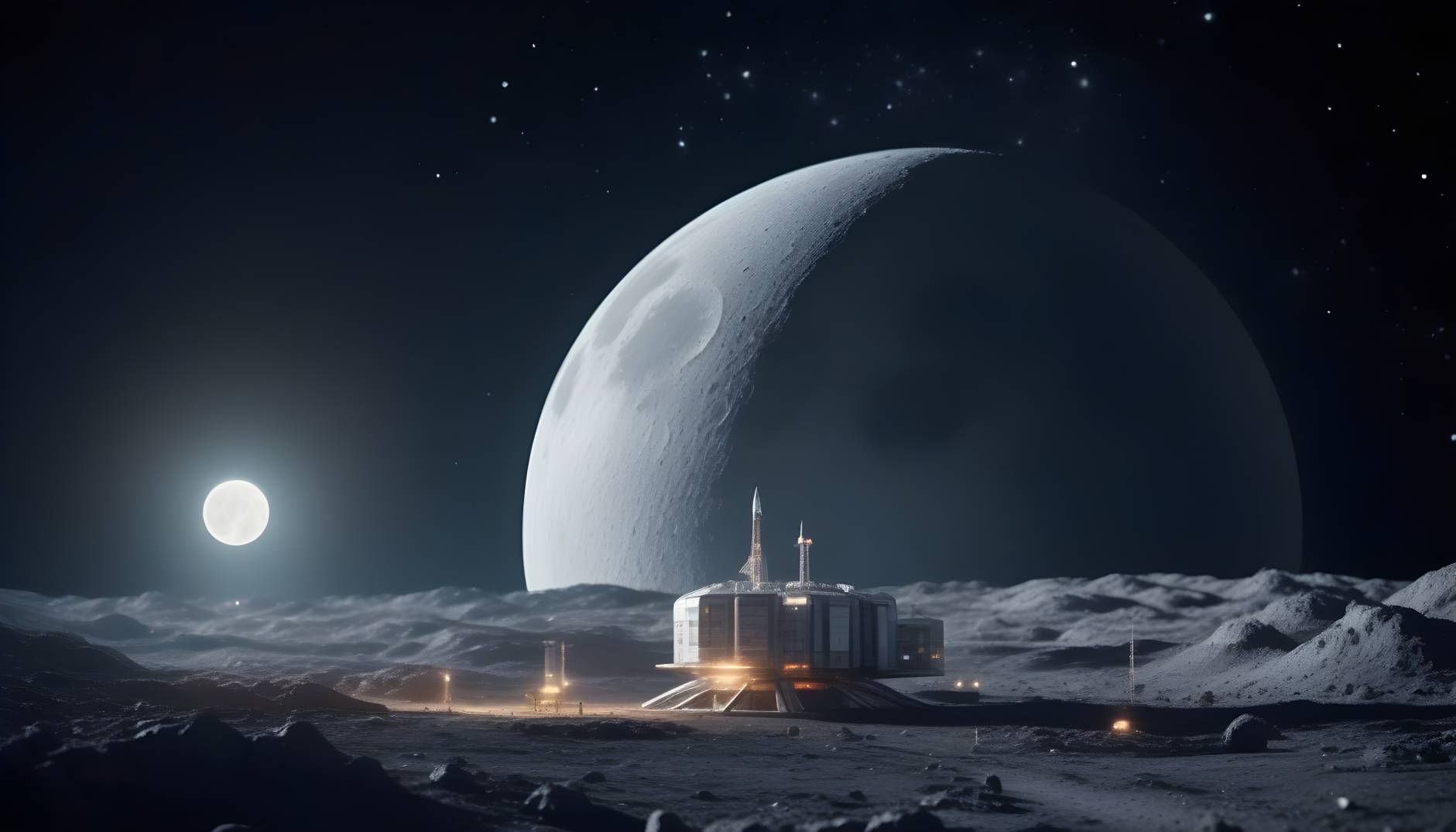Moon as space base for humans : Have you ever wondered what it would be like to live in space? To explore the stars, planets, and moons of our solar system and beyond? To be part of a new frontier of humanity?
If you have, you are not alone. Many people share this dream of becoming space explorers and colonists. But how can we make this dream a reality? How can we overcome the challenges of living in space, such as the harsh environment, the high costs, and the limited resources?
Consider using Earth as a space base as a potential solution.
It implies that we may utilise Earth’s orbit as a staging place for our space endeavours rather than launching rockets and spacecraft from the ground. Our homes, offices, and launchpads in space could be constructed as factories, stations, and orbital habitats. We could manoeuvre and refuel our spacecraft with the assistance of Earth’s gravity and atmosphere. We may support our space endeavours by utilising Earth’s infrastructure and resources.
How would this help us?
It would benefit us much. It would, first and foremost, lower the price and danger of space travel. Because rockets must overcome Earth’s gravity and air resistance, launching them from the ground is costly and risky. Because rockets just need to contend with space’s vacuum, launching them from orbit is less expensive and safer.
Furthermore, it would expand our reach and potential in space. We could store more fuel, materials, and equipment in space if we had orbital facilities. Additionally, it would make it possible for us to build bigger, more intricate spaceships that could transport more passengers and goods to farther-off locations.
Thirdly, it would raise the standard of living for us in space. We would have more room, light, and vistas living in orbit than we would on the surfaces of other worlds, making life more pleasant and comfortable. Additionally, we would be able to communicate and travel about Earth more easily, allowing us to maintain relationships with our friends, family, and cultures.
How can we achieve this vision?
Though it sounds like science fiction, it is conceivable. In actuality, we already possess a few of the experiences and technology required to make it happen. As an illustration, consider the International Space Station (ISS), a cooperative endeavour involving multiple nations that has been circling the planet since 1998. ISS serves as a research facility, a workshop, and a residence for astronauts from many countries who come to test new technology, carry out scientific research, and gain experience living and working in space. Satellites, crew capsules, and cargo ships are just a few of the spacecraft that can be launched and docked on the International Space Station (ISS). We can construct and run massive facilities in orbit, work with other nations in space, and take advantage of the research and innovation that space has to offer thanks to the International Space Station (ISS).
Artemis program :
The Artemis programme, a strategy by NASA and its allies to bring people back to the Moon by 2024, is another such. With the help of the Artemis programme, astronauts will be able to stay on the moon permanently and study its geology, resources, and past. In addition, the Artemis programme intends to construct Gateway, a lunar orbiting station that will act as a halfway point for trips to the Moon and beyond. Modules for habitation, employment, docking, and spacecraft refuelling will be available at the Gateway. Experiments and tools for studying the Moon and outer space will also be housed at the Gateway. With the help of the Artemis programme, we can return to the Moon with new objectives and tools, utilise it as a supply of minerals and energy for space operations, and get ready for trips to Mars and other planets in the future.
These are only two instances of how Earth is already being used by humans as a space base. However, we are capable of more. By constructing more dwellings, industries, stations, and satellites, we may increase the size of our orbital infrastructure. By sending more rovers, landers, orbiters, and people to the moon, we may increase our exploration efforts. The Moon’s resources can be used to create building materials, rocket fuel, and other necessities for space travel. Additionally, the Moon can serve as a test bed for systems and technologies that humans will require on Mars and beyond.
Earth can be used as a space base, and this is a desired idea. It is a means of realising our desire to live in space. It’s a means of realising our species’ potential. It’s a means of building a better future for the earth and ourselves.




